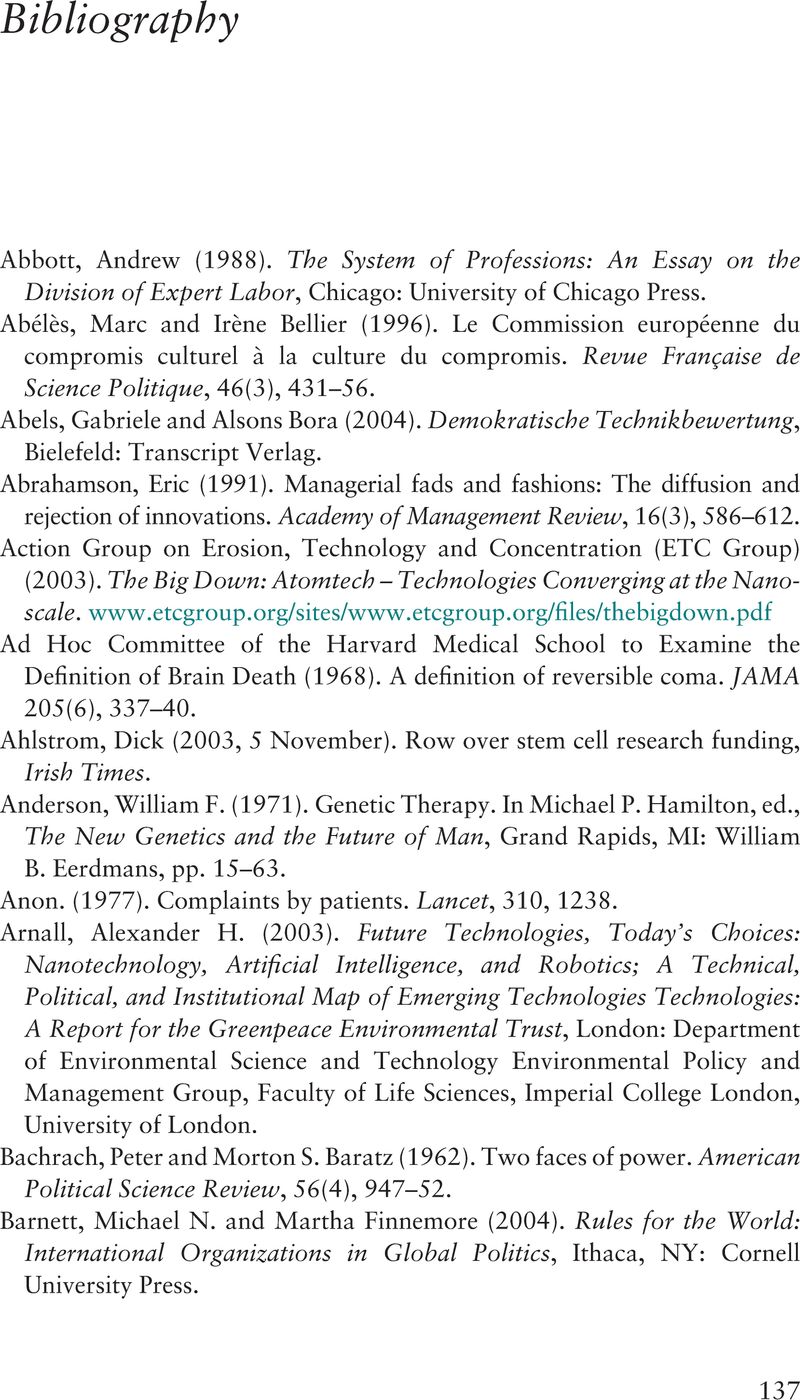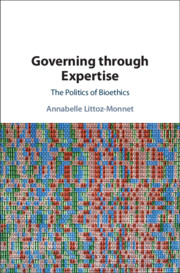Book contents
- Governing through Expertise
- Governing through Expertise
- Copyright page
- Contents
- Acknowledgements
- Abbreviations
- 1 Introduction: Governing Science and Technology
- 2 Re-conceptualising the Enmeshment of Knowledge and Politics
- 3 The Fabric of Ethics Experts
- 4 Researching Embryonic Stem Cells
- 5 Manipulating Particles on a Small Scale
- 6 Tracking People’s Behaviour
- 7 Conclusion
- Annex European Group of Ethics Experts 1991–2020
- Bibliography
- Index
- References
Bibliography
Published online by Cambridge University Press: 30 October 2020
- Governing through Expertise
- Governing through Expertise
- Copyright page
- Contents
- Acknowledgements
- Abbreviations
- 1 Introduction: Governing Science and Technology
- 2 Re-conceptualising the Enmeshment of Knowledge and Politics
- 3 The Fabric of Ethics Experts
- 4 Researching Embryonic Stem Cells
- 5 Manipulating Particles on a Small Scale
- 6 Tracking People’s Behaviour
- 7 Conclusion
- Annex European Group of Ethics Experts 1991–2020
- Bibliography
- Index
- References
Summary

- Type
- Chapter
- Information
- Governing through ExpertiseThe Politics of Bioethics, pp. 137 - 154Publisher: Cambridge University PressPrint publication year: 2020



